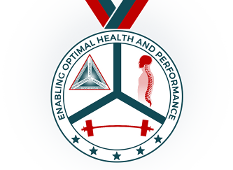This is the first in a short series of posts regarding recent evidence of an increase in diseases due to malnutrition. The first consideration is the legitimacy of the food we consume. Although I strongly favour organic foods over conventionally grown foods, conversations with friends and colleagues reveal that many question if there is in fact any notable difference between them.
But in 2014, The British Journal of Nutrition published the results of a meta-analysis of 334 studies comparing the quality of organic vs conventionally grown food performed by the Ecological Farming department at Newcastle University. Researchers there discovered that there was no statistically significant difference observed in the macro-nutrient (fats, proteins, and carbohydrates) profiles of organic vs conventionally grown foods; however–organic foods had much better micro-nutrient (vitamins and minerals) profiles. It must be mentioned that heterogeneity of included studies was extremely high (I2 = >75%), as organic standards around the world are vastly different. (The topic of genetically modified foods (GMO) makes the picture much less clear, and is in part the focus of future articles).
Additional studies by the same group of researchers reported moderate level evidence that both organically produced meat as well as organically produced milk have a far superior fatty acid profile.
And not surprisingly, Newcastle researchers also found that organic crops had significantly less cadmium containing pesticide residues (found in both pesticides and fertilizer). Dynamed (a clinical reference tool developed by physicians) lists the possible complications of chronic cadmium exposure as kidney disease, osteoporosis, and other conditions stemming from calcium/vitamin D deficiencies, as well as zinc deficiencies.
Cost is also a tremendous consideration for many, as organically produced foods are roughly 25% more expensive. For those with many mouths to feed, this can lead to different choices.
We all have our own decisions to make regarding the production and consumption of organic foods. But I suggest that choosing (non-GMO) foods that have a better nutritional profile and are produced without/with fewer chemicals may be significantly less expensive for both your health and your pocketbook in the long run. Additionally, continuing to support the organic market despite skepticism will also allow the world’s food producers greater ability to produce foods that are healthy for both our bodies and our planet.
